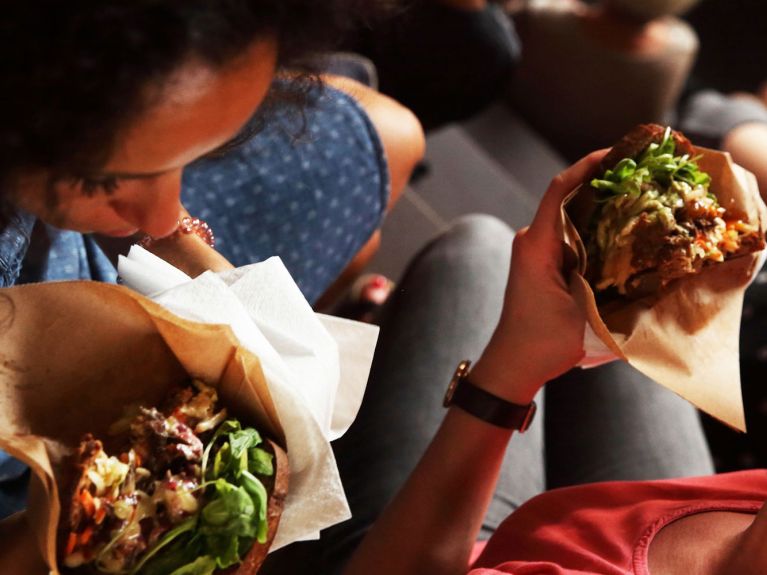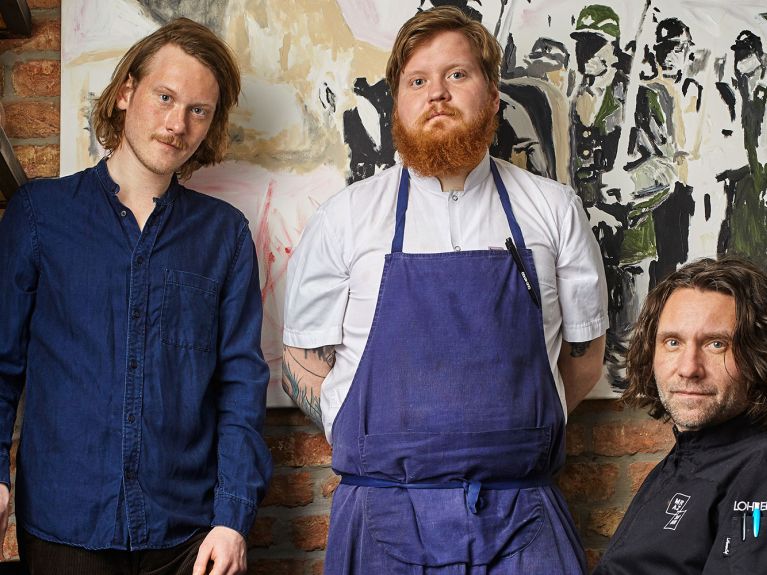The Wurst is over
Until only a few years ago, vegans were still subject to ridicule from the majority of consumers. Now, not only Berlin has emerged as a hot spot for vegetarian and vegan cuisine.

When Berlin takes time to celebrate its best chefs at the annual Berlin Master Chefs gala dinner, these prize-winning culinary artists are usually asked to do the very thing they’re being honored for: cook.
Socially acceptable food
In 2015, Lukas Mraz – head chef at a hip Berlin restaurant at the time – was one such honoree. On that evening, he created something very special, namely a vegan tartar – albeit with a fried egg on top. A couple of courses later, he served a more traditional plate of warm beef tartar with brown butter, soy sauce, mushrooms and roasted onions. People have called Mraz a “wild young chef,” and that night he showed the dinner guests – almost all of them Berlin-based businessmen and businesswomen – just what contemporary cuisine could do. From that moment on, vegetarian and even vegan food culture has been considered socially acceptable in Berlin.

Today, roughly four years later, one might get the impression that the entire country has gone wild for meatless burgers. One US brand, in particular, has become a big hit. According to media reports, their burgers sell out the minute they hit the shelves at major German discount supermarkets.
Conscious respect for the environment
Indeed, plant-based eating has now emerged as a lucrative new branch in the food industry, with producers using modern strategies to expand their market share. However, as animal welfare, sustainability and climate-friendly policies are all hot topics, conscientious consumers point out that the plant-based burgers are shipped to Germany all the way from California – in copious amounts of packaging to boot. “Is this the new green schizophrenia?” asked one blogger recently. “For me, eating vegan goes hand-in-hand with a conscious respect for our environment.”
Even though the popular US plant-based burgers do not fulfill those criteria, they’ve nevertheless struck a nerve among consumers, in particular by calming their bad conscience and suggesting a sensible handling of resources. And it’s true, these days everyone in Germany is aware of the extent to which industrial livestock production involving cattle, pigs and poultry damages the environment.
“I don’t eat anything that has eyes”
The younger generation in particular is fighting to create a better and more just future. And the youngest among that group are now an aggressively courted target group in the food industry. Kids simply don’t want to eat meat anymore, especially when they find out where the sausage, schnitzel or burger comes from and that an animal had to die to get it there. “I don’t eat anything that has eyes,” they say.
This often makes it difficult for families to keep the peace at dinner time. So it’s understandable that environmentally conscious parents are grateful for any alternatives to meats and sausages, such as those churned out by Rügenwalder Mühle, one of Germany’s best-known meat product manufacturers.
Fast growing revenues
In Lower Saxony, Rügenwalder Mühle has been connected almost exclusively to meat products for the past 183 years. Since 2014, however, it has been producing vegetarian alternatives designed to perfectly mimic meat. For example, supermarket chains now carry frozen vegan Mühlen steaks, vegetarian Mühlen ground beef and vegetarian Mühlen bratwurst. And revenues are growing fast. In fact, according to managing director Godo Röben, they’re increasing at the same rate as consumers’ environmental consciousness.
Until only a few years ago, vegans and their missionary attitude towards food consumption were still subject to ridicule from the majority of consumers. They had to buy their food in stores that sold exclusively vegan products, and some vegetarians considered themselves lucky if their carnivorous friends took them to a restaurant serving meat, even if they had to make do with just side dishes.
Read the whole text on The German Times website
Susanna Glitscher is project manager and head of content for Berlin Food Week.
Eva-Maria Hilker is editor and publisher of the food magazine EssPress Berlin.

